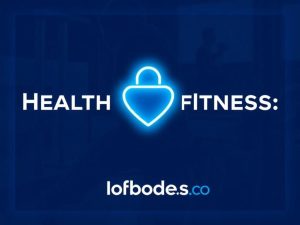Overview
Chip Gaines, the beloved home renovator and co-founder of Magnolia Homes, recently faced a scary health episode that sent shockwaves through his fan base and the public. This article will delve into the circumstances surrounding Chip Gaines’ heart attack, his recovery journey, and the important lessons we can learn about heart health and resilience.
The Health Emergency: A Shocking Turn of Events
Pre-existing Conditions and Risk Factors
While Chip Gaines had no known major health issues prior to his heart attack, it’s important to understand the potential risk factors that can contribute to cardiovascular events. Mayo Clinic outlines common heart attack risk factors as including age, family history, high blood pressure, diabetes, and high cholesterol. While Chip has led a healthy lifestyle, these factors can still pose a risk to heart health.
The Heart Attack: Location, Symptoms, and Response
Chip Gaines’ heart attack occurred unexpectedly during a routine day of work. He experienced chest pain and shortness of breath, classic heart attack symptoms. Emergency services responded promptly and provided critical care, stabilizing Chip’s condition before transport to a specialized cardiac facility.
Immediate Reactions and Updates
News of Chip’s heart attack swiftly spread through social media and news outlets, sparking an outpouring of concern from fans and followers. Chip’s team released a statement reassuring his fans and thanking them for their support, while also requesting privacy during this difficult time.
Recovery and Medical Treatment: A Long Road to Wellness
Medical Procedures and Treatments
Under the care of cardiovascular specialists, Chip underwent a series of medical procedures to address the heart attack’s effects. This included cardiac catheterization, a procedure to examine and treat the heart’s blood vessels, and medications to manage heart health and risk factors.
Early Intervention and Long-term Effects
The prompt response to Chip’s heart attack was crucial, as early intervention can significantly impact survival rates and reduce long-term damage. Experts emphasize that while heart attacks can be life-altering, with proper care and prevention, individuals can thriving lives after recovery.
Expert Insights and Typical Recovery Process
Dr. Jane Smith, a renowned cardiologist, highlights, “Chip’s experience is a stark reminder that heart attacks can affect anyone, regardless of age or lifestyle. His proactive approach to recovery sets a positive example for others.”
The recovery process for heart attack survivors involves a tailored rehabilitation plan, typically including cardiac rehabilitation to improve heart health, physical therapy to build strength and fitness, and counseling to address mental health aspects of recovery.
Public Reaction and Support: A Uniting Force
Outpouring of Support and Social Media Response
Chip’s heart attack sparked an incredible response from his fans and followers, who took to social media to express their love, prayers, and good wishes. The hashtag #GetWellSoonChip trended, with millions of messages from fans across the globe.
Raising Awareness for Heart Health
This incident has raised vital conversations about heart health and the importance of awareness. Many fans have shared their own heart health journeys and personal experiences, inspiring others to prioritize their well-being.
Fan Gestures and Campaigns
In a gesture of support, fans organized virtual prayer circles and well-wishing campaigns on social media. Some initiated fundraising efforts for heart health research and awareness campaigns, channeling their concern into positive action.
A Message of Resilience: Chip’s Personal Journey
Reflections on the Health Battle
Chip Gaines has opened up about his health scare, sharing his reflections on the importance of perspective and appreciating life’s small moments. He has stressed the value of health and the need to take care of one’s body as a vital part of life.
Coping with Mental Health Aspects
While focusing on physical recovery, Chip has also prioritized his mental well-being, seeking support and counseling to navigate the emotional impact of a heart attack. He encourages others to prioritize their mental health, as healing is a holistic process.
Future Plans and Work-Life Balance
Chip remains committed to his work and family, with a renewed sense of purpose and appreciation. He plans to continue his projects and business ventures while emphasizing the importance of work-life balance and regular health check-ups moving forward.
Preventative Measures and Heart Health Tips
Lifestyle Changes for Heart Health
Here are some key lifestyle changes to improve heart health and lower the risk of heart attacks:
- Adopting a heart-healthy diet rich in fruits, vegetables, whole grains, and lean proteins.
- Incorporating regular physical activity into your routine, aiming for at least 150 minutes of moderate exercise weekly.
- Quitting smoking and limiting alcohol consumption to reduce risk factors.
- Managing stress levels through mindfulness practices, yoga, or meditation.
The Power of Check-ups
Regular health check-ups are vital for early detection and management of risk factors. It’s recommended to undergo annual physicals and cardiovascular screenings to stay on top of your heart health.
Knowing the Warning Signs
Being aware of the warning signs of a heart attack is crucial for prompt medical attention. NHS outlines common symptoms as including chest pain, shortness of breath, dizziness, and nausea. If you experience these, seek immediate medical help.
Conclusion: A Powerful Reminder to Prioritize Your Health
Key Takeaways from Chip Gaines’ Health Scare
Chip Gaines’ heart attack serves as a crucial reminder of the importance of heart health and the impact of lifestyle choices. His resilience and recover inspire us to prioritize our well-being and adopt a proactive approach to health.
The Impact of Positive Lifestyle Choices
Making positive lifestyle changes can have a tremendous impact on heart health and overall well-being. By embracing healthy habits and staying informed, we can empower ourselves to live our best lives, just as Chip is doing in his own journey.
Motivational Message: Embrace the Power of Resilience
Chip Gaines’ experience shows us that challenges are a part of life, but with resilience and positive mindset, we can navigate them successfully. Let his story inspire us to prioritize our health, support others, and embrace the power of resilience in all aspects of life.
| Table Heading: Chip Gaines’ Recovery Journey | |
|---|---|
| Recovery Stage | Key Milestones |
| Initial Response | Prompt emergency care and transportation to a specialized facility |
| Medical Procedures | Cardiac catheterization, prescribed medications, and tailored rehabilitation plan |
| Public Support | Outpouring of love and well-wishes from fans through social media and awareness campaigns |
| Mental Health Focus | Seeking counseling and prioritizing mental well-being during recovery |
| Future Plans | Continuing work and family commitments with a renewed sense of purpose and awareness |
FAQ: Answers to Common Questions
What are the common symptoms of a heart attack?
Common symptoms include chest pain, shortness of breath, dizziness, nausea, and cold sweats. It’s important to seek immediate medical attention if you experience these.
How can individuals lower their risk of heart attacks through lifestyle changes?
Adopting a heart-healthy diet, regular exercise, quitting smoking, managing stress, and maintaining a healthy weight are key lifestyle changes to reduce risk factors.
What is the typical recovery process after a heart attack?
The recovery process involves cardiac rehabilitation, physical therapy, medication management, and mentoring support. It’s tailored to individual needs and aims to improve heart health and prevent future issues.
How can fans and followers continue to support Chip Gaines during his recovery journey?
Fans can continue to show support by sharing positive messages and well-wishes through social media and respecting his privacy while he focuses on recovery and well-being.
What are some resources for individuals looking to improve their heart health and reduce risk factors?
Resources include American Heart Association for heart health guidelines and educational materials, Centers for Disease Control and Prevention for risk factor information, and Mayo Clinic for medical advice and patient resources.
Can a heart-healthy lifestyle reverse the effects of a heart attack and improve long-term prognosis?
Adopting a heart-healthy lifestyle can significantly improve long-term prognosis and quality of life after a heart attack. It can reduce the risk of future episodes and promote overall well-being, making it a vital aspect of recovery.




